Everyman at National Theatre
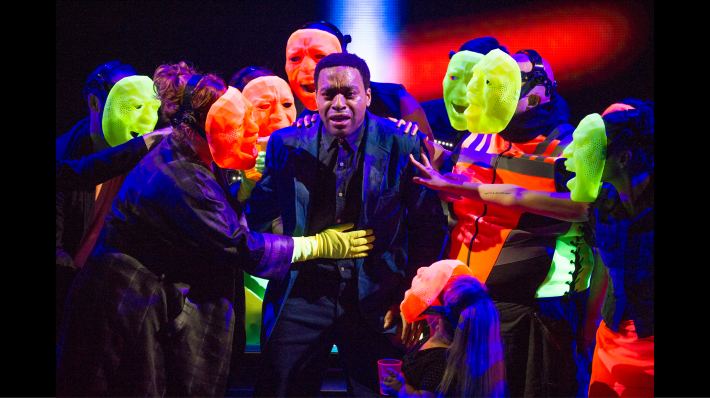
This contemporary adaptation by Carol Ann Duffy of Everyman, originally a 15th century morality play, affects its audience deeply, leaving them speechless. Dark humour with a touch of irony sets the tone for this fantastic hard-hitting drama that, despite its medieval origin, is surprisingly relevant to contemporary life. Duffy and director Rufus Norris have been brilliantly successful in adapting the characters and scenarios to make them easily relatable for viewers and applicable to this modern, anthropocene age.
 While humour is used to alleviate more serious undertones, the themes and message of this drama are extremely thought-provoking. Social, environmental and cultural issues of the current world are brutally exposed through verse, ultimately questioning what it is to be a human being. The skill and believability of the actors is essential for such significant messages, and the entertaining perspective on consumerism and corruption is well executed by the entire cast. Best known for his award winning role in 12 Years a Slave, lead actor Chiwetel Ejiofor in particular gives an incredible performance, keeping the audience on the edge of their seats throughout.
While humour is used to alleviate more serious undertones, the themes and message of this drama are extremely thought-provoking. Social, environmental and cultural issues of the current world are brutally exposed through verse, ultimately questioning what it is to be a human being. The skill and believability of the actors is essential for such significant messages, and the entertaining perspective on consumerism and corruption is well executed by the entire cast. Best known for his award winning role in 12 Years a Slave, lead actor Chiwetel Ejiofor in particular gives an incredible performance, keeping the audience on the edge of their seats throughout.
After an opening monologue, the viewers are thrown straight into a compelling, dramatised and superbly choreographed party scene. Choreographer and movement director Javier De Frutos designs a recurrence of the composition of this segment, which is used several times again during the play, gradually becoming less frivolous and more sinister with slight alterations in costume and delivery.
Costume is one of the many tools in this production that is carefully applied to support the themes addressed. The designs are diverse and completely unpredictable, making every scene a novelty to observe. In addition to this, an avant-garde video is also cleverly used in the background to enhance the dramatic effect of plot. Including the stage lighting, the overall set design is inventive and extremely well thought through, which supports the narrative perfectly.
The music by William Lyons is particularly ingenious; in correlation with adapting the historic script, it too takes a medieval influence, giving it a modern twist. A live band consisting of traditional medieval and renaissance instruments is orchestrated and combined with contemporary electronic beats, creating an innovative and original sound. Traditional folk songs are also intertwined in the music, sung by the cast in a gospel-like style. Altogether, the effect is thrilling and assists in making the performance so engrossing.
Emily D’Silva
Everyman is on at the National Theatre from 30th April until August 30th 2015, for further information or to book visit here.


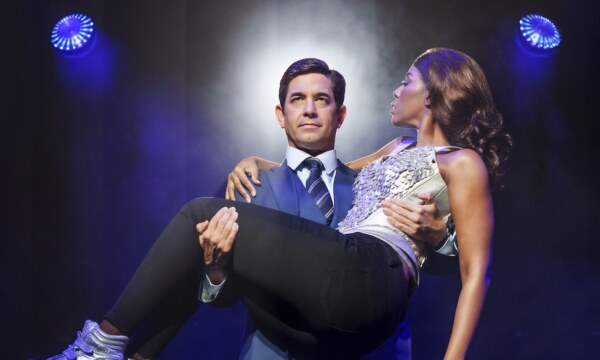
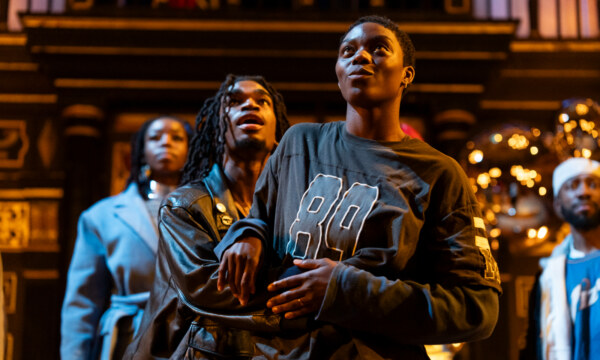
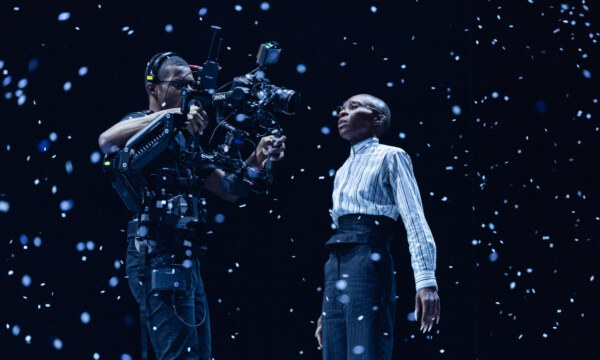
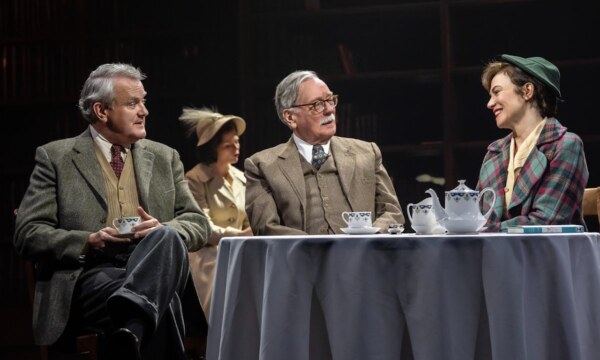
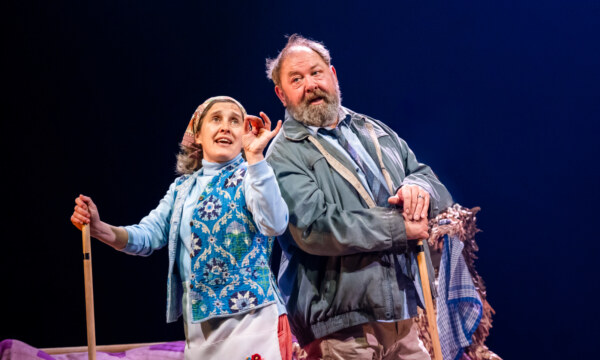
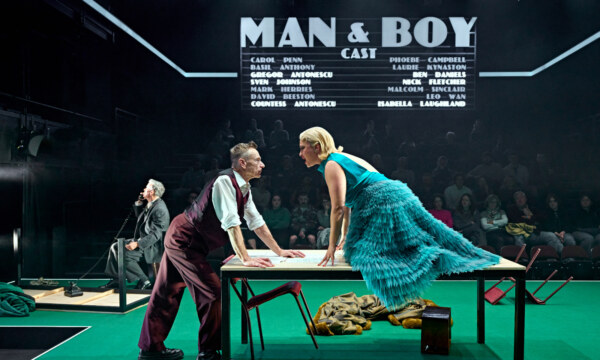
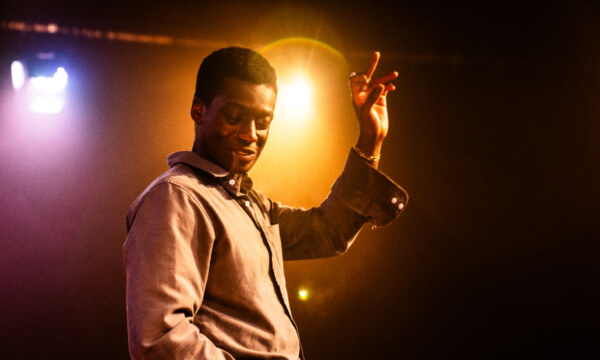
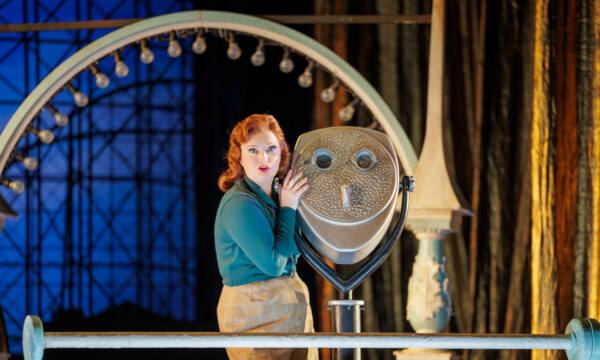
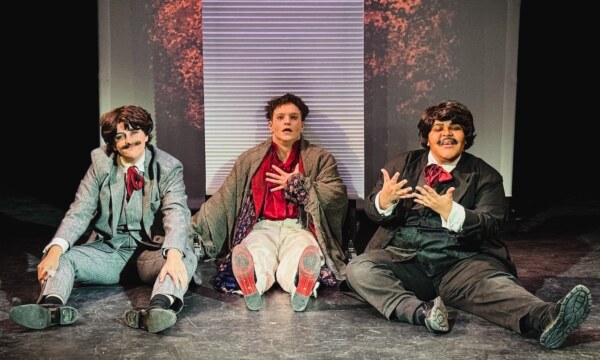

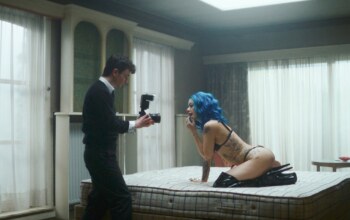
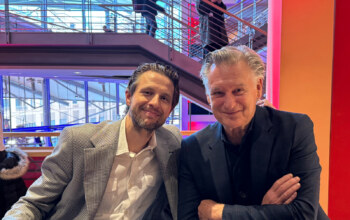
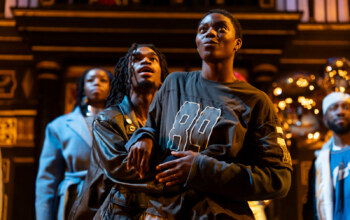
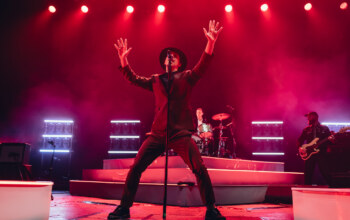



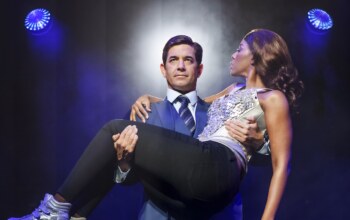


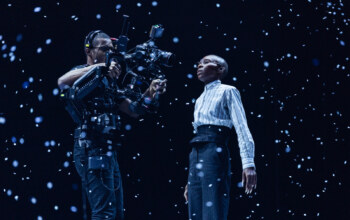
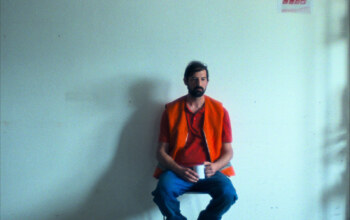
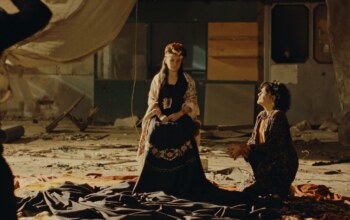
Facebook
Twitter
Instagram
YouTube
RSS